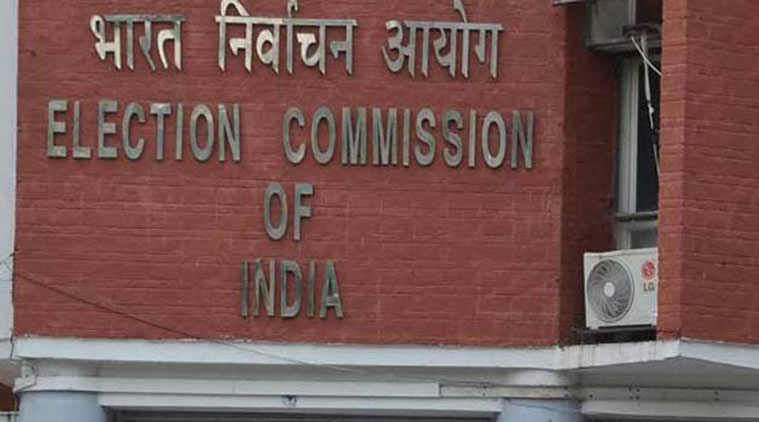
Maintaining it was in favour of continuing the existing system of random checking of VVPAT slips from one EVM per assembly segment for the Lok Sabha and assembly polls, the Election Commission has told the Supreme Court that increasing it to 50 per cent “shall enlarge the time required for counting to about six days”.
The EC’s affidavit in court came in response to a petition by 21 political parties, which had sought directions to the poll body to randomly verify at least 50 per cent of electronic voting machines (EVMs) using voter verifiable paper audit trail (VVPAT) slips in the assembly and general elections starting next month.
Hearing the plea on March 25, a bench headed by Chief Justice of India Ranjan Gogoi told the EC that it “would like” the poll panel “to increase” the number of random VVPAT checks, and asked it to indicate whether any insurmountable difficulty will be caused if the court issues an order to this effect.
In its reply filed Friday, the EC explained the various measures associated with EVM and VVPAT, and said “the present system has been adopted after detailed study and consideration of all aspects, and bringing into play all safeguards and checks as have been felt necessary”. It added that to alter the system “when polls are imminent and polling is to commence from April 11, 2019… might not be feasible”.
Click here for more election news
It said that in many assembly constituencies, there are more than 400 polling stations, and it will require about eight-nine days to complete the VVPAT slip count. There will also likely be demands for recount of the VVPAT slips, and this will further increase the time, the affidavit stated.
The Commission said it had engaged the Indian Statistical Institute to submit a report in view of demands from political parties to increase the sample size for VVPAT slip verification from 10% to 100%.
The report — authored by an expert committee comprising professor Abhay G Bhatt, Head, Indian Statistical Institute, Delhi Centre; professor Rajeeva L Karandikar, Director, Chennai Mathematical Institute; and Omkar Prosad Ghosh, Deputy Director General (Social Statistics Division), Central Statistics Office — was received on March 22. Nominations to the panel had been made by the Director General, National Sample Survey Office (NSSO).
Explained | Why hacking EVMs are tough and defy science
The report, the EC pointed out, said that “any further increase in the sample size of verification will lead to very negligible gain in the confidence level”.
It also concluded that “adoption of a particular percentage as a sample for VVPAT slip verification is devoid of any scientific logic or statistical basis”.
The absolute number of the sample size, and not the percentage adopted for verification, determines the ability of such sample to accurately represent the overall population, the report had said. It had also recommended that “undertaking slip verification for 479 EVMs and VVPATs out of the 10.35 lakhs EVMs and VVPATs to be used in the ensuing elections is sufficient to achieve a confidence level of 99.9936%”, the EC submitted.
The affidavit said that increased VVPAT slip counting will require extensive training and capacity building of election officials in the field, and the number of such officials will have to be increased substantially. It also stated that this will “require larger counting halls, which already pose a great difficulty in certain states”.
The poll panel said that any manual count “is prone to human errors or deliberate mischief and any large-scale slip verification substantially compounds this likelihood of manual error and mischief in counting of votes”.
The EC also pointed out that similar demands for increasing the samples for VVPAT audit had been raised in the past too, and the court had been satisfied with its guidelines and manner of dealing with VVPATs, and had not been inclined to interfere.
It said that since the introduction of the VVPAT slip counts from May 2017, “1,500 polling stations over several general elections to the state legislatures as well as by-elections to the Lok Sabha and state assemblies have undergone VVPAT slip count wherein the tally matched completely, that is, no error was found”.